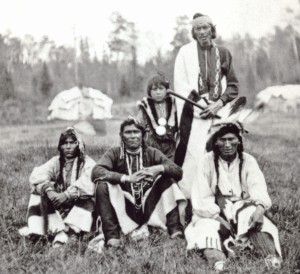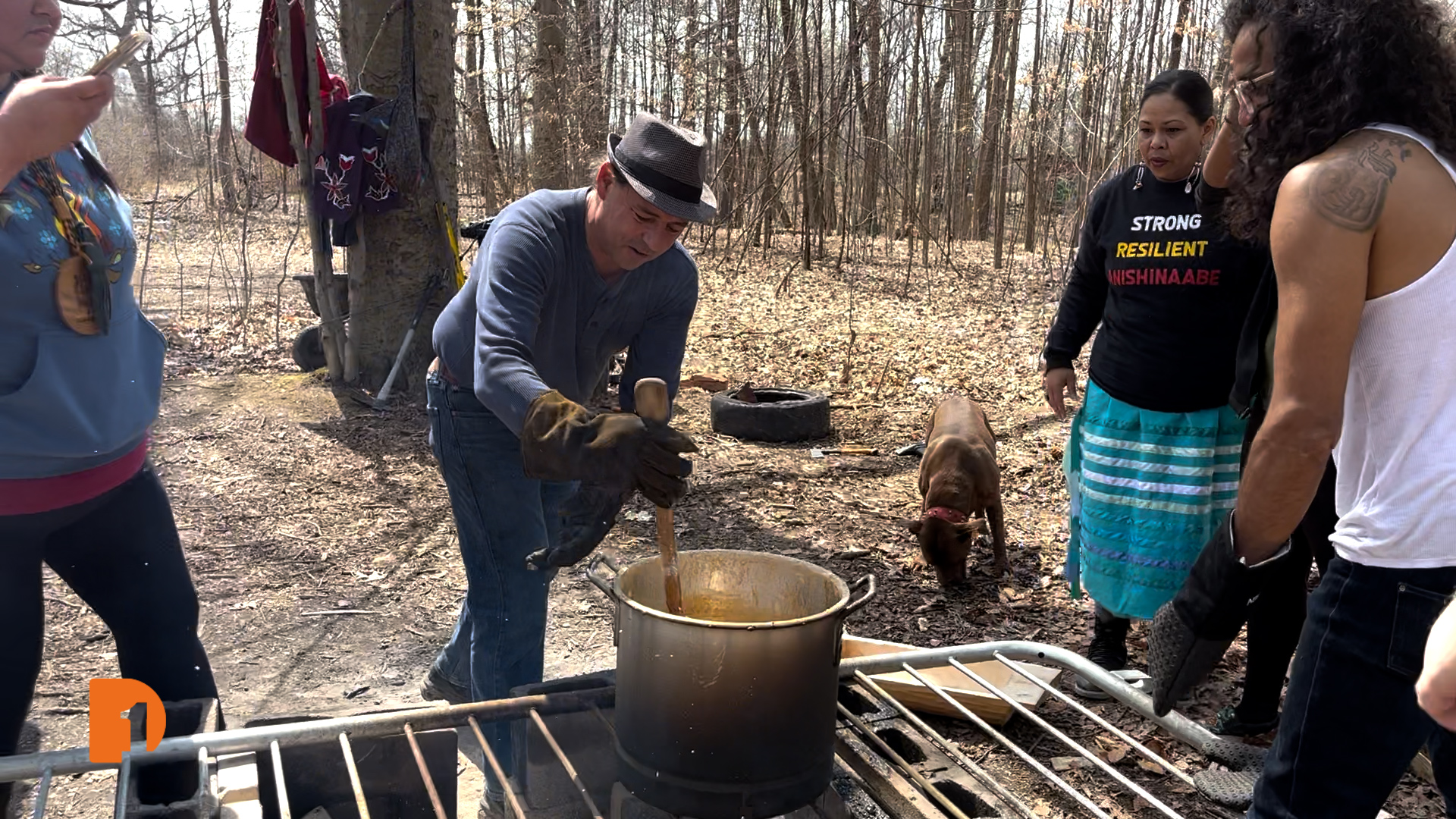Michigan’s Indigenous Legacy: A Journey Through Diverse Tribes and Rich History
Michigan’s Indigenous Legacy: A Journey Through Diverse Tribes and Rich History

Michigan, the "Great Lakes State," is a land steeped in the history and culture of its original inhabitants – the Native American tribes. For millennia, these tribes thrived in the diverse landscapes of Michigan, leaving behind a rich tapestry of traditions, languages, and stories that continue to resonate today. This article delves into the fascinating world of Michigan’s Native American tribes, exploring their unique histories, cultural practices, and the ongoing efforts to preserve their heritage.
The Anishinaabe: Guardians of the Great Lakes
Related Articles: Michigan’s Indigenous Legacy: A Journey Through Diverse Tribes and Rich History
- Discover Your Spirit Animal: A Native American Journey of Self-Discovery
- Apache’s Arsenal: Unveiling the Ancient Hunting Tools of Legendary Warriors
- Unveiling the Enchanting World of the Zuni Tribe: The Late 1800s in New Mexico
- Unveiling the Heartbeat of Aboriginal Legacy
- Unveiling the Fish-Feasting Tribe: A Culinary Journey Among Sea-Bound People
The Anishinaabe, also known as the Ojibwe, Odawa, and Potawatomi, are the most prominent Native American group in Michigan. Their name, "Anishinaabe," translates to "original people" or "the people," reflecting their deep connection to the land and their role as the original inhabitants of the region.
The Anishinaabe arrived in Michigan thousands of years ago, migrating from the east. They developed a sophisticated understanding of the environment, utilizing its resources sustainably and living in harmony with nature. Their traditional way of life revolved around hunting, fishing, gathering, and agriculture. The Anishinaabe were skilled artisans, creating intricate beadwork, birch bark canoes, and pottery.
The Anishinaabe’s Journey Through History
The Anishinaabe’s history in Michigan is marked by both resilience and hardship. They encountered European settlers in the 17th century, initially establishing trade relationships. However, as European influence grew, the Anishinaabe faced pressure on their traditional lands and way of life. The 19th century saw the forced relocation of many Anishinaabe to reservations, a process that brought about significant changes to their social structure and cultural practices.
Despite the challenges, the Anishinaabe remained resilient, adapting to the changing world while holding onto their cultural identity. They played a crucial role in shaping the history of Michigan, contributing to the state’s economic development, and influencing its cultural landscape.
The Anishinaabe’s Legacy Today
Today, the Anishinaabe tribes in Michigan continue to thrive, maintaining their cultural traditions and advocating for their rights. They operate casinos, businesses, and cultural centers, contributing to the economic and social well-being of their communities. They also actively work to preserve their language, art, and traditional knowledge, ensuring that their rich heritage will continue to be passed down through generations.
Beyond the Anishinaabe: Other Indigenous Tribes in Michigan

While the Anishinaabe are the most prominent Native American group in Michigan, other tribes also played a significant role in the state’s history and culture. These include:
- The Huron-Wendat: These people, also known as the Wyandot, were originally located in the southern Great Lakes region, including parts of present-day Michigan. They were known for their skilled agriculture and their complex social structure. The Huron-Wendat were significantly impacted by European diseases and warfare, leading to their displacement from their original territories.
- The Ottawa: The Ottawa, closely related to the Anishinaabe, inhabited the western shores of Lake Michigan and the lower peninsula. They were skilled hunters, fishermen, and traders, and played a crucial role in the fur trade. The Ottawa also faced displacement and hardship due to European expansion.

Preserving Indigenous Heritage: A Collective Effort
Preserving the rich heritage of Michigan’s Native American tribes is a shared responsibility. It requires understanding, respect, and collaboration. Here are some ways to support the efforts to preserve and celebrate Indigenous culture:
- Visit tribal museums and cultural centers: Immerse yourself in the history and culture of Michigan’s Native American tribes by visiting their museums and cultural centers. These institutions offer valuable insights into their traditions, art, and way of life.
- Support Indigenous businesses and artisans: Support the economic empowerment of Native American communities by purchasing goods and services from Indigenous-owned businesses and artisans.
- Learn about Indigenous history and perspectives: Educate yourself about the history and perspectives of Michigan’s Native American tribes. Read books, watch documentaries, and engage in conversations with Indigenous people to gain a deeper understanding of their experiences.
- Respect tribal sovereignty: Recognize and respect the sovereignty of Michigan’s Native American tribes. They are self-governing entities with their own unique laws and traditions.
- Advocate for Indigenous rights: Support organizations working to protect the rights and interests of Native American communities.

A Legacy of Resilience and Hope
Michigan’s Native American tribes have a rich and complex history, one marked by resilience, adaptation, and the enduring spirit of their ancestors. Their traditions, languages, and stories continue to inspire and teach us about the importance of preserving cultural heritage and respecting the natural world. By embracing the legacy of Michigan’s Indigenous people, we can learn from their wisdom, celebrate their contributions, and build a future where their voices are heard and their rights are protected.
FAQ about Native American Tribes in Michigan
1. What are the main Native American tribes in Michigan?
The most prominent Native American group in Michigan is the Anishinaabe, which includes the Ojibwe, Odawa, and Potawatomi. Other tribes with historical ties to Michigan include the Huron-Wendat and the Ottawa.
2. What are some of the cultural traditions of Michigan’s Native American tribes?
Michigan’s Native American tribes have a rich tapestry of cultural traditions, including storytelling, beadwork, basket weaving, pottery, birch bark canoe making, and traditional dances and ceremonies.
3. Where can I learn more about Michigan’s Native American history and culture?
You can learn more by visiting tribal museums and cultural centers, reading books and articles, watching documentaries, and engaging in conversations with Indigenous people.
4. How can I support the preservation of Native American heritage in Michigan?
You can support Indigenous communities by visiting tribal museums and cultural centers, purchasing goods and services from Indigenous-owned businesses and artisans, learning about Indigenous history and perspectives, respecting tribal sovereignty, and advocating for Indigenous rights.
5. What are some of the challenges facing Native American tribes in Michigan today?
Native American tribes in Michigan continue to face challenges related to economic development, healthcare, education, and environmental protection. They also face the ongoing impact of historical injustices, such as forced relocation and assimilation policies.
6. What are some of the successes of Native American tribes in Michigan?
Native American tribes in Michigan have achieved significant successes in areas such as economic development through casinos and businesses, cultural preservation through museums and cultural centers, and self-governance through tribal governments.
7. How can I connect with Native American communities in Michigan?
You can connect with Native American communities in Michigan by visiting tribal websites, attending cultural events, and participating in community outreach programs.
8. What are some of the ways Native American culture is celebrated in Michigan?
Native American culture is celebrated in Michigan through various events, festivals, and celebrations, including powwows, cultural demonstrations, and art exhibitions.
9. What are some of the ways I can learn more about the history of Native American tribes in Michigan?
You can learn more about the history of Native American tribes in Michigan by visiting historical sites, reading books and articles, watching documentaries, and engaging in conversations with Indigenous people.
10. What are some of the resources available to help me learn more about Native American culture in Michigan?
There are numerous resources available to help you learn more about Native American culture in Michigan, including tribal websites, museums, cultural centers, libraries, and educational organizations.
11. What are some of the ways I can support Native American students in Michigan?
You can support Native American students in Michigan by advocating for culturally relevant education, supporting Native American-led education initiatives, and promoting diversity and inclusion in schools.
12. How can I help address the issue of Missing and Murdered Indigenous Women (MMIW) in Michigan?
You can help address the issue of MMIW by raising awareness, supporting organizations working on the issue, and advocating for justice for Indigenous women and their families.
13. What are some of the ways I can learn more about the history of colonization in Michigan and its impact on Native American communities?
You can learn more about the history of colonization in Michigan by reading books and articles, visiting historical sites, and engaging in conversations with Indigenous people.
14. What are some of the ways I can contribute to the reconciliation process between Native American communities and non-Native communities in Michigan?
You can contribute to the reconciliation process by supporting Indigenous-led initiatives, engaging in respectful dialogue, and working to address the ongoing impacts of colonization.
15. What are some of the ways I can advocate for the rights and interests of Native American tribes in Michigan?
You can advocate for the rights and interests of Native American tribes in Michigan by contacting your elected officials, supporting Indigenous-led organizations, and participating in advocacy campaigns.
By actively engaging with these questions and exploring the resources available, we can foster a greater understanding and appreciation for the rich legacy of Michigan’s Native American tribes, ensuring that their voices continue to be heard and their stories continue to be told.

Closure
Thus, we hope this article has provided valuable insights into Michigan’s Indigenous Legacy: A Journey Through Diverse Tribes and Rich History. We hope you find this article informative and beneficial. See you in our next article!